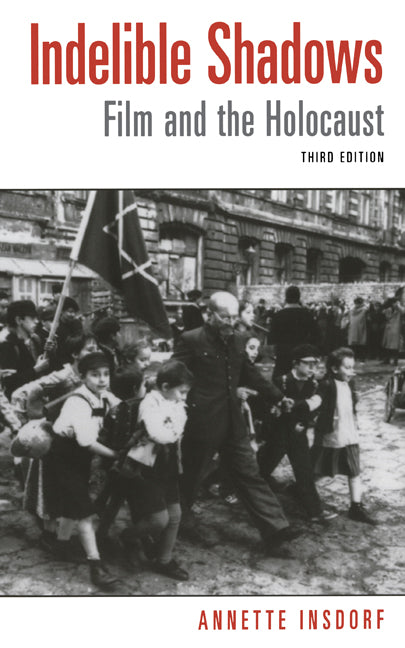Freshly Printed - allow 8 days lead
Couldn't load pickup availability
Indelible Shadows
Film and the Holocaust
Includes five additional chapters that cover recent trends, as well as rediscoveries of motion pictures.
Annette Insdorf (Author), Elie Wiesel (Foreword by)
9780521815635, Cambridge University Press
Hardback, published 25 November 2002
434 pages, 137 b/w illus.
22.9 x 15.2 x 2.9 cm, 0.81 kg
"Indelible Shadows is a thoroughly researched and excellently compiled book."
Maria Kornatowska, The Polish Review
Indelible Shadows investigates questions raised by films about the Holocaust. How does one make a movie that is both morally just and marketable? Annette Insdorf provides sensitive readings of individual films and analyzes theoretical issues such as the 'truth claims' of the cinematic medium. The third edition of Indelible Shadows includes five additional chapters that cover recent trends, as well as rediscoveries of motion pictures made during and just after World War II. It addresses the treatment of rescuers, as in 'Schindler's List'; the controversial use of humor, as in 'Life is Beautiful'; the distorted image of survivors, and the growing genre of documentaries that return to the scene of the crime or rescue. The annotated filmography offers capsule summaries and information about another hundred Holocaust films from around the world, making this edition an extremely comprehensive discussion of films about the Holocaust, and an invaluable resource for film programmers and educators.
Part I. Finding an Appropriate Language: 1. The Hollywood version of the Holocaust
2. Meaningful montage
3. Styles of tension
4. Black humor
Part II. Narrative Strategies: 5. The Jew as child
6. In hiding/onstage
7. Beautiful evasions?
8. The condemned and doomed
Part III. Responses to Nazi Atrocity: 9. Political resistance
10. The ambiguity of identity
11. The new German guilt
Part IV. Shaping Reality: 12. The personal documentary
13. From judgment to illumination
Part V. Third Edition Update: 14. The Holocaust as genre
15. Rediscoveries
16. Rescuers in fiction films
17. The ironic touch
18. Dysfunction as distortion: the Holocaust survivor on screen and stage
19. Documentaries of return.
Subject Areas: Film theory & criticism [APFA]


